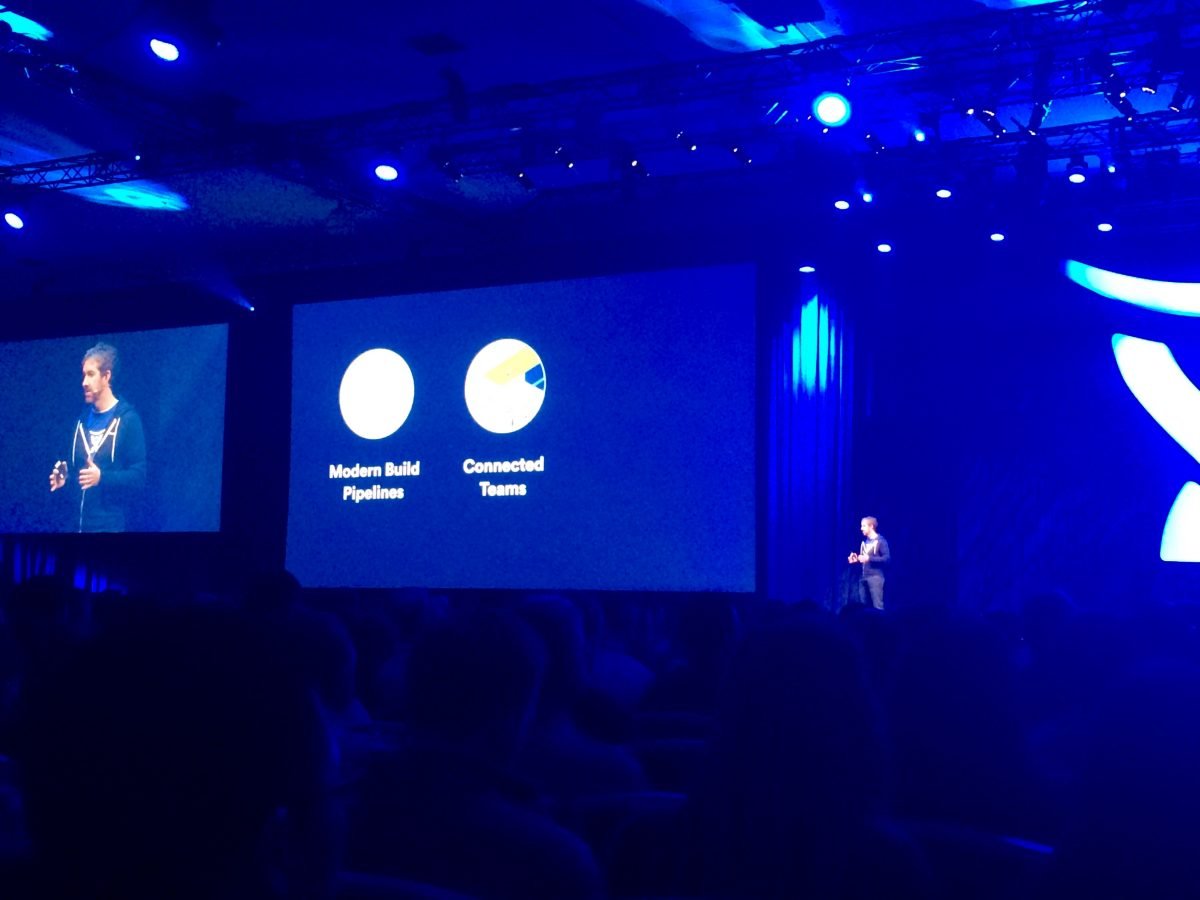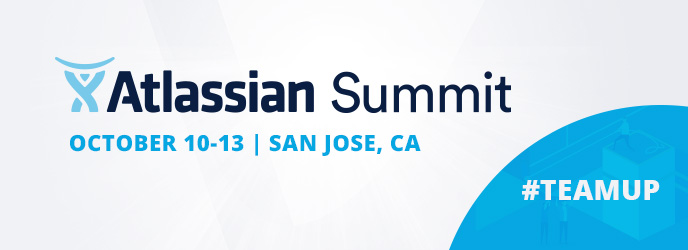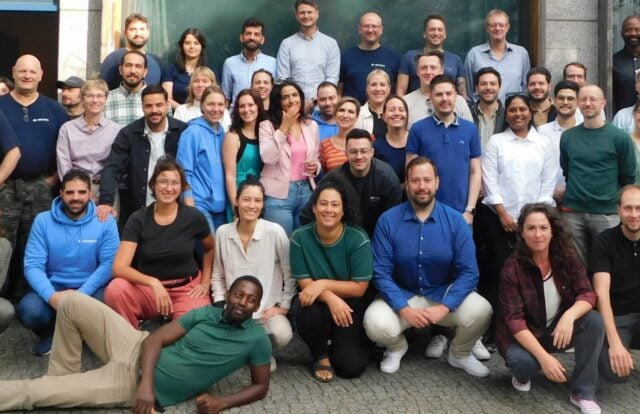Despite the previous night’s revelry at the Summit Bash, the auditorium at San Jose Convention Centre was packed to the rafters for the second keynote of the Atlassian Summit, delivered by founder and Co-CEO Scott Farquhar. The theme? Breaking down silos and working as teams.
Scott kicked off by documenting the shift in the way we do business, namely the unprecedented move from products to services. From buying cars to taking Ubers and purchasing CDs to streaming online, the world is becoming increasingly services-driven. This means one thing for businesses – they need to be on the ball.
“The ways we used to work don’t work anymore as people expect 24/7 service,” Scott claimed. He offered the example of software teams, who would once upon a time put out a yearly release incorporating customer feedback each time, but who are now shipping product continually based on that same feedback.
“When you’re releasing every week, you can no longer work in a siloed environment,” he stated.
[bctt tweet=”When you’re releasing every week, you can no longer work in a siloed environment” username=”Valiantys”]
So how is Atlassian working to break down silos between business teams and development teams? Here’s what the team shared.

Modern build timelines
Modern build timelines in Bitbucket were presented as a key feature to help dev teams shift from shipping products to running services in a landscape where cloud and microservices have driven an evolution in the ways teams work. Scott outlined three key features of Bitbucket pipelines that dev teams can take advantage of:
Configuration meets code
This is the big one – build pipelines unite code and configurations in a centralised location. Built on Docker containers, build pipelines can be used across all programming languages and make it super-simple to manage your versions alongside your code.
Better visibility
Pipelines give teams visibility into the status of a build before they start working, so no more working on broken code or breaking the build for other team members before merging.
Infinite scale
Bid farewell to traditional build systems that require teams to configure capacity ahead of time – pipelines instantly scale up as and when required.
Connected teams
Next up was Didier Moretti, General Manager, cloud apps, who warned of the perils of silos and explained why DevOps is playing such a fundamental role in overcoming silos. How? Looking at the role of development, operations and customer services teams when it comes to managing incidents, Didier explained that without the right communication, information overload and response coordination can become difficult – often effecting the customer. DevOps, however, works to overcome this by helping teams share both goals and tools.
[bctt tweet=”#DevOps: helping teams work together by sharing tools and goals #AtlassianSumit” username=”Valiantys”]
But DevOps, he continued, isn’t always enough, especially when it comes to customer service. All teams need a customer-service driven ethos, and the ability to share information is real time via shared platforms that promote greater visibility. Sound familiar? What’s more, with an average of 70% of incident reviews rendered forgotten, Atlassian tools also equip teams with the functionality to continuously learn and improve their services.
Introducing: the Team Playbook
Didier then went on to introduce Atlassian’s Team Playbook – a series of exercises and techniques to help teams transform the way they work and ensure that as well as having the right tools in place, teams have the right practices in place, too.
[bctt tweet=”Great tools + great practices = great teams #AtlassianSummit #TeamUp” username=”Valiantys”]
Alongside this, Atlassian is also introducing Team Health Monitors, people dedicated to identifying issues facing teams that effect performance.
And there you have it – that’s why Atlassian tools are being used by teams at 60,000 companies.
Stay tuned for more Atlassian Summit news!



